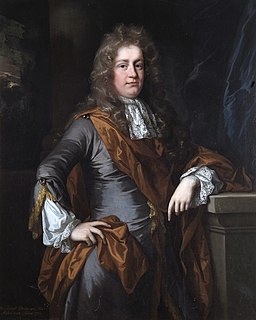William Williams may refer to:

Earl of Kimberley, of Kimberley in the County of Norfolk, is a title in the Peerage of the United Kingdom. It was created in 1866 for the prominent Liberal politician John Wodehouse, 3rd Baron Wodehouse. During his long political career he notably held office as Lord Lieutenant of Ireland, Secretary of State for the Colonies, Secretary of State for India and Secretary of State for Foreign Affairs. He was succeeded by his son, the second Earl. At first a Liberal like his father, he later joined the Labour Party, becoming the first Labour member of the House of Lords. His eldest son, the third Earl, represented Norfolk Mid in the House of Commons as a Liberal. Since 2002, the titles are held by the latter's grandson, the fifth Earl.
William, Willy or Bill Russell may refer to:
Thomas, Tommy or Tom Butler may refer to:

There have been two baronetcies created for persons with the surname Buxton, one in the Baronetage of Great Britain and one in the Baronetage of the United Kingdom. One creation is extinct while the other is extant.
The high sheriff is the oldest secular office under the Crown and is appointed annually by the Crown. The High Sheriff of Norfolk was originally the principal law enforcement officer in Norfolk and presided at the assizes and other important county meetings. Most of the responsibilities associated with the post have been transferred elsewhere or are now defunct, so that its functions are now largely ceremonial. There was a single high sheriff serving the two counties of Norfolk and Suffolk until 1576.
There have been three baronetcies created for persons with the surname Hare, one in the Baronetage of England and two in the Baronetage of the United Kingdom. One creation is extant as of 2007.
Thomas Lloyd may refer to:
The Lord High Treasurer of Ireland was the head of the Exchequer of Ireland, chief financial officer of the Kingdom of Ireland. The designation High was added in 1695. After the Acts of Union 1800 created the United Kingdom of Great Britain and Ireland, the Consolidated Fund Act 1816 merged the Irish Inferior Exchequer into the British Treasury with effect from 1817, and the post of Lord High Treasurer of Ireland was abolished. The Superior Irish Exchequer, or Court of Exchequer, remained, led by the Chief Baron of the Irish Exchequer.
Sir Edmund Bacon, 5th Baronet, of Gillingham, Norfolk, was a British Whig politician who sat in the House of Commons from 1722 to 1738.

Sir Edward Astley, 4th Baronet was a British politician who sat in the House of Commons from 1768 to 1790.
There have been two baronetcies created for persons with the surname Drury, one in the Baronetage of England and one in the Baronetage of Great Britain. Both creations are extinct.

Sir Ralph Hare, 1st Baronet of Stow Bardolph, Norfolk was an English politician who sat in the House of Commons variously between 1654 and 1672.

Sir John Sydenham, 2nd Baronet (1643–1696) was an English politician who sat in the House of Commons at various times between 1665 and 1679.
Tom Hare MRCVS was a British veterinary pathologist. He was professor of the Royal Veterinary College from 1927 to 1933.

Sir Robert Dashwood, 1st Baronet (1662–1734) was an English politician.
Sir Thomas Hare, 2nd Baronet was a member of the East Anglian gentry and a Member of the Parliament of England.
Sir Thomas Hare, 4th Baronet (1686–1760) Stow Bardolph, Norfolk was a British politician who sat in the House of Commons between 1713 and 1715.
Sir Thomas Leigh Hare, 1st Baronet, was a British Conservative politician and Member of Parliament. He represented South West Norfolk in the House of Commons between 1892 and 1906.
This page is based on this
Wikipedia article Text is available under the
CC BY-SA 4.0 license; additional terms may apply.
Images, videos and audio are available under their respective licenses.




